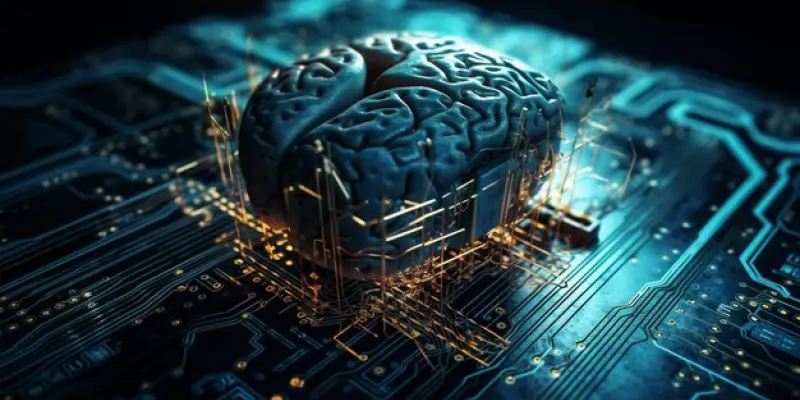Adobe Acrobat AI has introduced advanced features to simplify the analysis of complex contracts and legal documents, significantly benefiting both businesses and consumers. This initiative firmly establishes Adobe’s leadership in the document management market by embedding artificial intelligence (AI) into its flagship product, Adobe Acrobat, providing users with unprecedented ease and efficiency in managing their documents. The sophisticated AI technology aims to bridge a critical gap identified through Adobe’s research, where a large number of individuals and businesses often sign contracts without a full understanding of the terms.
Revolutionizing Document Analysis with AI
The updated Acrobat AI Assistant can automatically identify contracts, summarize key terms, and compare different versions of documents, helping users better understand the content they are dealing with. These new capabilities address a significant problem identified by Adobe’s research: a substantial number of people sign contracts without fully understanding them. Specifically, the research revealed that nearly 70% of consumers and 64% of small business owners have signed or avoided signing contracts due to uncertainties regarding the terms. This staggering statistic underscores the necessity for tools that can make intricate documents more comprehensible.
Adobe’s new features aim to shift the paradigm from traditional keyword search to conversational AI, making document analysis more intuitive and accessible. Lori DeFurio, a product executive at Adobe, emphasized this transition by declaring, “Control F is dead. Why would I ever search again when I can just ask?” This statement underscores Adobe’s vision of making complex documents easier to understand for everyone. By leveraging conversational AI, users can ask straightforward questions about their documents and receive coherent, simplified responses, thus demystifying the otherwise daunting process of contract analysis.
Enhancing User Understanding and Efficiency
The new AI capabilities in Acrobat act like an intelligent research assistant. While they do not substitute legal advice, they provide significant support by simplifying the understanding of contract terms and highlighting provisions that might warrant further inquiry. Michi Alexander, Adobe’s VP of product marketing, explained, “This is not a replacement for legal advice. This is just to help you understand as a starting point your contracts and where you potentially might want to ask questions.” Such capabilities are crucial for users who may lack a legal background but still need to navigate through contractual agreements effectively.
By analyzing the text of contracts and presenting the information in a more digestible format, Adobe’s AI can enable users to compare up to ten different contract versions in a table format that highlights specific changes. It can also handle scanned documents, even if they are imperfectly captured. A key feature of Adobe’s AI is its ability to provide specific citations for its analyses, directing users to the exact section of the document where particular terms are found. This targeted approach not only saves time but also ensures that users focus on the most critical parts of their documents, thereby enhancing their overall understanding and efficiency.
Ensuring Data Security and Privacy
Data security remains a priority as these AI features are integrated into enterprise software. Adobe ensures that all contract analysis occurs transiently, meaning that documents are processed in the cloud without being stored or used to train AI models. DeFurio reassured users by stating, “We do not look at any of the documents that you don’t tell it to…your content is never used to train AI models.” This commitment to data security is essential, especially in a time when privacy concerns are at an all-time high. By processing documents without storing them, Adobe maintains user trust while providing robust AI-driven solutions.
The integration of these AI features into Adobe’s existing Acrobat ecosystem, which boasts over 650 million monthly active users, comes at an additional cost of $4.99 per month for individual users, with enterprise pricing available for larger organizations. This AI integration helps companies streamline operations by significantly reducing the time required for contract review. Early users have reported a reduction in contract review time by 70 to 80%, with one real estate development executive noting, “I used to spend 45 minutes on initial contract reviews. Now I typically finish in under 10 minutes.” The measurable impact on efficiency further underscores the value of these AI enhancements for businesses of all sizes.
The Future of Document Management
Adobe Acrobat AI has unveiled cutting-edge features designed to simplify the analysis of intricate contracts and legal documents, greatly benefiting both businesses and individual consumers. This initiative solidifies Adobe’s standing as a leader in the document management industry by integrating artificial intelligence into its flagship software, Adobe Acrobat. With these advancements, users can now handle their documents with unmatched ease and efficiency. The sophisticated AI technology seeks to address a significant issue identified in Adobe’s research: a large number of people and organizations frequently sign contracts without fully comprehending the terms. By leveraging AI, Adobe aims to bridge this gap, ensuring that users have a clearer understanding of the documents they are dealing with, thereby protecting their interests and fostering informed decision-making. This innovation not only enhances user experience but also streamlines workflows, making it easier for companies and individuals to manage critical documents reliably and effectively.

